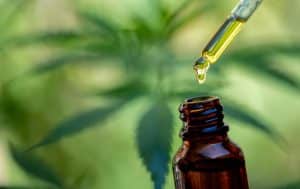Is CBD Legal in Texas?
 Cannabidiol (CBD) has taken the wellness world by storm, touted by many for its potential to alleviate a variety of ailments. However, for Texans considering CBD use, legal grey areas can create confusion. Today we want to take a dive into the legality of CBD in Texas, addressing our clients’ common questions and offering insights.
Cannabidiol (CBD) has taken the wellness world by storm, touted by many for its potential to alleviate a variety of ailments. However, for Texans considering CBD use, legal grey areas can create confusion. Today we want to take a dive into the legality of CBD in Texas, addressing our clients’ common questions and offering insights.
Understanding hemp vs. marijuana
CBD, or cannabidiol, is a naturally occurring chemical compound found in the cannabis plant. Unlike its more famous cousin THC (tetrahydrocannabinol), CBD is not psychoactive, meaning it doesn’t produce a “high.”
The legality of CBD hinges on the source: hemp or marijuana. Both belong to the cannabis sativa plant, but with important differences:
- Hemp: Characterized by high levels of CBD and minimal tetrahydrocannabinol (THC), the psychoactive compound responsible for the “high” associated with marijuana. Hemp typically contains less than 0.3% THC.
- Marijuana: Contains significant levels of THC, producing psychoactive effects.
The 2018 Farm Bill and the rise of hemp
In 2018, we saw the passage of the federal Farm Bill. This legislation legalized the cultivation, production, and sale of hemp at the federal level, provided the THC content remains below 0.3%. This opened doors for the widespread production and marketing of CBD products derived from hemp.
Following the Farm Bill’s lead, Texas enacted House Bill 1325 in 2019. This legislation legalized the cultivation, processing, and sale of industrial hemp and hemp products containing less than 0.3% THC. On the surface, this appeared to establish a clear legal framework for CBD products in Texas. However, for Texans considering CBD use, there are some significant caveats:
- Manufacturing restrictions: While possessing and purchasing CBD is legal, Texas Department of State Health Services regulations currently prohibit the processing and manufacturing of smokable hemp products within the state. This means Texans cannot legally buy smokable hemp flower, even though it might be legal under federal law.
- Uncertainties in regulation: The Texas Department of Licensing and Regulation (TDLR) oversees licensing for hemp businesses. However, specific regulations related to CBD products are still evolving. In our state, consumers lack the clarity and consistency seen in more established markets.
- Quality control concerns: The relatively new and unregulated nature of the CBD market in Texas can raise concerns about product quality. Consumers might encounter mislabeled or low-quality CBD products.
What does this all mean for me if I want to use CBD?
Texans can legally purchase and possess various forms of CBD products derived from hemp, including oils, tinctures, edibles, and topical creams, as long as the THC content stays below the 0.3% threshold.
Here are some key points to remember for safe and legal CBD use in Texas:
- Source your CBD carefully: Purchase CBD products from reputable retailers who can provide lab reports verifying the THC content and overall quality of their products. Don’t hesitate to ask questions and ensure the retailer is transparent about their sourcing and manufacturing practices.
- Beware of smokable hemp: While smokable hemp is legal federally, the sale and possession remain prohibited in Texas. Stick to other forms of CBD products to stay on the safe side.
- Consult your doctor: Before starting CBD use, especially if you are taking any medications, discuss it with your doctor to avoid potential interactions. CBD can interact with certain medications, so professional guidance is crucial.
Delta-8 THC: A gray legal area
The situation gets murkier when it comes to Delta-8 THC. This is another cannabinoid found in hemp, with some psychoactive effects milder than traditional THC. The legal status of Delta-8 in Texas is currently under debate. Some argue it falls under the umbrella of legal hemp products due to its origin. Others believe its psychoactive nature positions it outside the legal boundaries.
Until the legalities are clarified, you should exercise caution with Delta-8 products. Avoid purchasing or using them until there’s a definitive answer from the courts.
Predicting the future of CBD regulations in Texas is challenging. The state legislature might introduce new regulations to further define the legal landscape for CBD products. Additionally, the ongoing national conversation surrounding marijuana legalization could have implications for Texas’ stance on CBD.
If you’re arrested with CBD in Copperas Cove or anywhere else in Texas, stay calm and don’t answer any questions beyond basic identification. Politely request a lawyer and contact the Texas criminal defense attorneys at Mary Beth Harrell Criminal Defense and DWI Lawyers immediately. We can explain the nuances of CBD regulations, assess your situation, and advise you on the best course of action to protect your rights. To schedule a meeting with a skilled lawyer, call our offices or fill out our contact form to schedule a consultation with one of our Killeen defense attorneys. We maintain an additional office in Killeen and proudly serve Belton, Harker Heights, Waco, Williamson County, Bell County, Coryell County, and McLennan County.

I’ve dedicated my legal career to defending my clients. I demand all the evidence. I investigate all the facts, the so-called witnesses and even the police officers. I make it my business to know the law. Cases can be won or lost before you even set foot inside the courtroom.
Read more about Mary Beth Harrell
